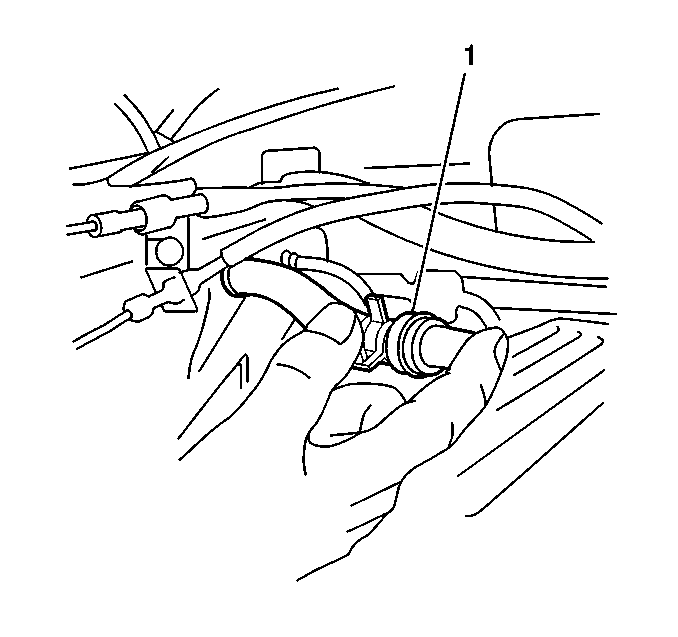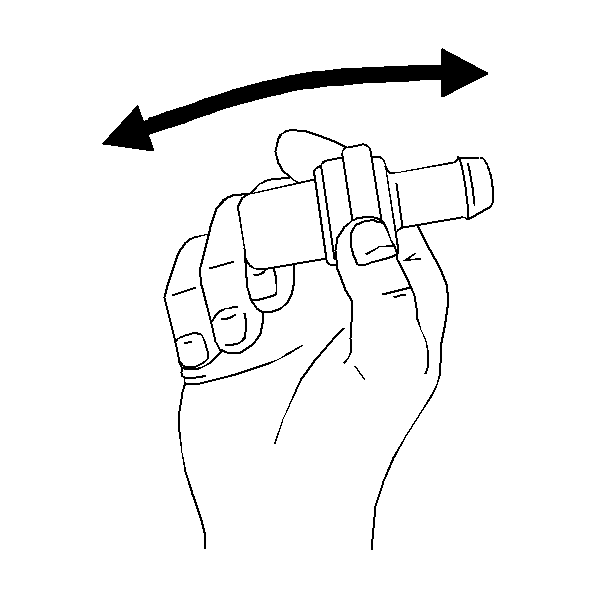Notice: Operating an engine without an effective crankcase ventilation system
may damage the engine. Replace the Positive Crankcase Ventilation (PCV) valve
at regular intervals. Use the correct PCV valve for the engine
and equipment type. Wrong or substandard parts may damage the engine components.
Use the following procedure to check the function of the
PCV system.

- Start the engine.
- Run the engine at idle.
- Place your thumb over the end of the PCV valve (1)
to check for vacuum. If there is no vacuum at the PCV valve, check for a plugged
intake manifold port, PCV valve, or vacuum hose. Replace or repair as necessary.
- Turn OFF the ignition.
- Remove the PCV valve.

- Shake the PCV valve while
listening for the rattle of the needle inside. Replace the PCV valve if the
valve does not rattle.
| • | Proper operation of the PCV system is dependent upon a sealed
engine with a freely flowing breather tube. |
| - | Check that the PCV breather tube and pipe are not blocked. |
| - | Check that the coolant passages at the breather pipe are becoming
hot after the engine runs a short time. |
| • | Build up of oil sludge or oil dilution is an indication of a leak
in the PCV system or crankcase. |
| - | Inspect all the hoses and clamps in the PCV system for signs of
damage or deterioration. |
| - | Inspect the engine for external oil leaks. |
- Install the PCV valve to the PCV hose.
- Install the PCV valve and hose into the valve cover.


